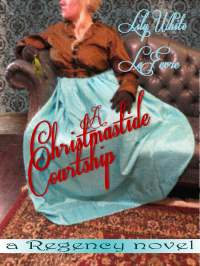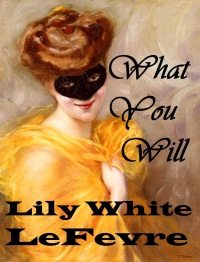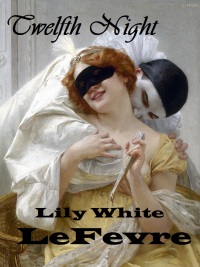AKA New Motherhood
My baby is now pushing 2 months old. An eternity in a blink.
Becoming “Mama” has come a lot more naturally than I thought. I have never really wanted kids for the sake of babies but rather KIDS, so I expected infancy to be something I would suffer through to get to the good stuff. Instead I have found a shocking amount of joy and sentiment in having a baby…holding him, cuddling him, learning to understand what he’s trying to communicate, watching him grow and change on a daily basis with this internal clock ticking down the moments we will have like this, sifting away one by one in the hourglass of life spent vs. life yet to come. I have always, even as a child, been aware of the finite nature of life and any given circumstance within it, but never has the poignancy of that riven me with this kind of acuteness. I’m crying sitting here typing this, with him asleep on my chest in his wrap. I don’t even know if I can still blame it on hormonally driven emotional intensity.
But just because I am enjoying my baby doesn’t mean there have been no challenges.
The worst among them was learning how to breastfeed. Is, I should say, as we still sometimes have issues. I went into breastfeeding unprepared. I thought it was something that would be pretty simple to do, simple for the baby to pick up – after all, baby horses are on their feet nursing within minutes of birth. Surely the only difference with a human was having to be held? Ha ha ha ha ha ha ha ha ha ha ha ha ha ha ha.
Ha.
I understand now why so many new moms give up on it. You’re sitting there in a hospital bed having not slept for two days, with your arms trembling from spending 2 1/2 hours pulling your torso up into a McRoberts’ Maneuver and so weak from exhaustion you’re afraid you’ll drop the baby, and he’s 9 pounds and squirming and came out strong enough to push himself up your chest with his arms or his legs so you have to use both hands to hold him in the feeding position, and the lactation consultant grabs your boob and holds it in his mouth and he starts sucking like a starving lamprey, and you think, I got this. Then you get home, and you realize you don’t have three hands, and how the fuck are you supposed to hold his head with one hand and his body with the other and still have a hand to shape your boob with? And then your tits swell up so much that for a few days you have no nipples at all – side effect of all the shit they pump into you with Pitocin and an epidural, and when they mentioned the edema it would cause they never thought to include your breasts in the list of places when clearly that just happened – so now it’s impossible to latch him without breast compression, which you can’t do because you have both hands holding him in place, and he’s frustrated and biting your nipples to bruising with his little gums until any pressure is enough to draw tears, and he’s screaming for hours because he hasn’t had a proper feed since the night before, and you’re crying and he’s crying and your husband is standing there saying “Why don’t I go get some formula?” I can see why people give up.
Luckily my husband is supportive enough of breastfeeding for the baby’s immune system health that he was willing to try one more tactic, so right then, the morning after our first night at home, he went and bought me a breast pump and some nipple shields, and to hell with all the La Leche League fascism about no bottles for 4 weeks and no nipple shields ever because the only problem they recognize is a latch issue which shields won’t solve. At that point I couldn’t feed my baby from the breast – he couldn’t find it most of the time, and even when he did it hurt so much I knew I was on borrowed time. My husband was only going to tolerate me sitting their with tears streaming down my face while the baby fed so many times before he insisted we switch. So for us the pumping/bottle-feeding early was the best thing we could have done. My husband and I both felt better after the baby got a feeding that we knew went down, and I felt better knowing that I could feed my baby without crying (pumping hurt way less than his frantic sucking). It took the pressure off getting him on the boob. When we tried a breast-feed with the prosthetic nipple over my flattened lumps, he sucked and slurped happily until milk was leaking out the side of his mouth because he had finally got his fill.
Yeah. That first 24 hours at home was a nursing nightmare.
It also started an ongoing beef with the overall attitude of lactation advice online. Same shit, different topic, as all the insufferable mommy blogs I gagged over while pregnant. I get that they feel like they’re part of a movement to re-normalize breast-feeding in American culture and well-intentioned with their advice, but I find a certain…rigidity to the articles that is both off-putting and unhelpful.
For example, the first few weeks after we got home, even after resolving the worst of the latching issues, my nipples hurt. At first it was because they were bruised from the baby’s first couple days (he even made one open up and bleed a bit that first night home) and then I spent several weeks gettting vasospasms after every feed so that my nipples were in a constant state of pain. I think some of it was residual damage from what he had initially done, and some of it may have been continuing latch/pinching issues, but I think I might tend toward Raynaud’s of the nipple (I have vivid memories of winters in high school spent with constantly aching breasts because of the cold air in my parents’ non-insulated drafty old country house). Whatever it was, I hit a point where if I read one more time that “breastfeeding isn’t painful if you’re doing it right” that I was just going to give up. It’s such an obnoxious thing to say, and the last thing a new mom who’s sitting there in pain needs to hear when she’s on the verge of giving up.
Other edicts of the breastfeeding fascists go against reality, such as not using any kind of artificial nipple (bottle or pacifier) for four weeks. Sorry, kiddo, I wasn’t mom enough for that…I would pump a bottle and let his daddy take one of the overnight feeds so I could get at least six hours of sleep in a row, and we caved on the pacifier thing about two weeks in because sometimes the baby was just inconsolable except with my boob in his mouth, and there was no way I could nurse him 24/7. I wasn’t even mom enough to nurse him 18/7. Giving him one bottle-feeding a day and something to suck on besides me for an hour or two of the day was helpful and necessary for our peace of mind, but all the pro-breast literature makes it out like that’s some horrific mistake that will ruin your baby’s willingness to breastfeed. Again, not helpful to the new parents with a baby who screams like the world is ending when he is taken off the tit no matter how long he just nursed or how much he ate. Then there’s my current question, which I can’t find an answer for and will just discuss with his doctor – at what point can I wean him of breastmilk and not need to replace with formula? According to my mom I started refusing the breast around 9 months and they just went to a full solids diet from there…is 9 months an appropirate age for that? Is 12 months really better or is that just the LLL agenda? I am not in a hurry to get him off the breast, but I don’t want to do extended breastfeeding (over 1 year), and my husband would like his favorite toys back sooner than that, and I’m not insensitive to his perspective. But everything out there is 1 year or longer! As long as you want! Until he goes off to school! Which, again, not helpful to someone interested in breastfeeding for the health benefits of the child rather than as a lifestyle.
Another: the lock-step condemnation of nipple shields. I don’t know if they are over-used in some hospitals, or too often pushed as a first resort instead of a last, but for me they saved breastfeeding. Without them, the best I could have managed for those first days after we came home, when my breasts were essentially razed and had to recover from pretty serious trauma, would have been to pump and bottle-feed every time he needed to eat…and who knows how hard it would have been to get him on the breast after that. We are still using the shields, and I feel no guilt about it. It’s inconvenient, but that’s about it for drawbacks. Periodically I try to latch him without a shield, and he will just start screaming. I can’t deal with it. And considering the only potential problem with using the shields long-term is supply, and my body tends toward over-supply (which has been its own challenge), I just don’t care enough to spend the energy weaning him from the shields. Either he’ll do it on his own or he won’t. Either way at least we’re still breastfeeding exclusively. Good enough for me.
In fact, I think my tendency to hyper-lactate might be part of why he still likes the shields. I have both a fast let-down and a fierce spray. I’ll hand express in the shower sometimes and shoot nearly a yard out of multiple ducts. No wonder the poor little guy chokes and sputters and says “oh hell no” sometimes even with the shield! Without one that fire hydrant spray is hitting the back of his throat instead of just flooding his mouth.
So, in all, breastfeeding has been a challenge, and at first it pretty much sucked and was hard to stay committed to. No one warned me about that.
We also have had some sleep struggles. Never at night, thank god – he has been a good night sleeper since day 1, going down between 8 and 10, logging 4-5 hours, then a feed and down for another 2-3. Lately we’ve added another 1-2 hours after that early-morning feed, so I am consistently getting 7-8 hours of sleep each night in 3 segments. Our sleep struggle is in the daytime. For the first, god, 5 or 6 weeks I could hardly get him to sleep at all during the day. The only times would be if he fell asleep on the boob and I didn’t move, or if one of his grandmas was rocking and singing to him. For me he would not soothe like that, which was bizarrely hurtful…I thought Mama was supposed to be the best! How come everyone BUT me can soothe my baby? I could soothe him, of course, but only with a feeding. I still can’t really put him down to nap during the day. He loves being in the wrap and will sleep for hours against me; he loves being held after a feeding and will sleep for hours while I read or watch TV. He’ll sleep if we take a walk with the stroller, or go for a drive, or if I rock and bounce him. But if I put him in his crib or his bouncer to try and get something done, he’ll wake up within 10 minutes and be upset. So I’ve given up trying, at least for now, and he is sleeping more now at 2 months than he ever has, and cries less than he ever has. I finally feel like I’ve got a handle on what he needs. Whew! Just in time for everything to change again as he makes the moves toward independent exploration….
The other new-mom challenge I’m noticing is on me, not the baby – I am just withdrawing deeply into my own head. There are ways I reach out of myself…texts, emails, blogging. Those are easy, probably because they are (or at least can be) accomplished on my phone, one-handed, while I’ve got the baby held between body and knees and only need one hand under his head. And in-person visits are easy, because whoever I’m with can just see how things are. I don’t have to explain. But phone calls have become prohibitive. It’s just impossible to explain verbally and spontaneously how things are with me. I’m fine, no post-partum blues, getting decent sleep, love my baby, what more is there to say? But of course it sounds so pat and rehearsed to say that; there’s no meat there, no real sense of what my life is. How do you say that my life is now spending 15 hours a day in my own head? I don’t know what I do in there all day. What I think about. I read a lot. Watch TV and movies sometimes. Read news articles online. Sometimes I even try and write. It’s rich in there, but how do you say it in a way someone who isn’t in here with me can understand?
I am slowly adding parts of my old life back in. I am cooking dinner again most nights (vs. just doing things like frozen pizza or Hamburger Helper). I have taken the grocery shopping back from my husband – the baby goes in his wrap and has a most excellent nap while I go about the store. I am starting to jog in the mornings, stroller in tow…next week I can finally start trying to lose weight again without fear it will affect my milk supply as long as I’m careful not to undereat too much. I am getting annoyed when the house stays dirty and wanting to tackle some of the organizational projects I know need to be done to make room for the indefinite presence of this little guy in our house. (That I would have started on earlier except for that needing to hold him all day thing.)
I have stopped getting the feeling of “when does my life go back to normal?” and internalized my new reality. I am still trying to find the right equilibrium within it, but at least I no longer feel like everything is upside down.




